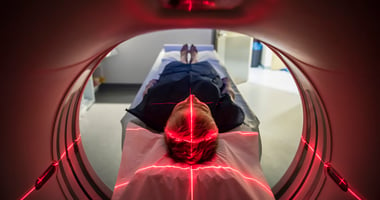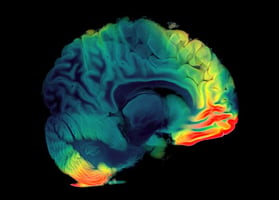Brain inflammation appears to be significantly higher in people with obsessive-compulsive disorder...
Hyperactivity of Caudate Nucleus May Be An Underlying Factor of OCD Symptoms, Study Finds
 |
Researchers in the departments of psychiatry and psychocology at Cambridge Behavioural and Clinical Neuroscience Institute and New York University performed MRI scans on the brains of 70 people, with and without OCD, to determine whether an association existed between symptoms of OCD and abnormal brain activation in the caudate nucleus, a structure in the basal ganglia that must fire correctly for one to control their habits. While receiving scans, the patients were asked to press a pedal, a part of a pedal pressing behavioral test, to avoid shock to the wrist. In the final stage of testing, the shock block was removed to assess whether the pedal-pressing behaviors of the patients could be discontinued.
The researchers found that patients with OCD were less capable of stopping their pedal-pressing habits than the control group. In addition, individuals in the OCD cohort were more likely to have hyperactivation in the caudate nucleus, compared with those without OCD.
The study’s lead author, Claire Gillian, Ph.D., a professor of psychology at the New York University, stated that the findings may not be specific to OCD and that in fact habits may underpin symptoms of many psychiatric conditions. “There are a range of human behaviors that are now considered examples of compulsivity, including drug and alcohol abuse and binge eating. What all these behaviors have in common is the loss of top-down control, perhaps due to miscommunication between regions that control our habits and those such as the prefrontal cortex that normally help control volitional behavior. As compulsive behaviors become more ingrained over time, our intentions play less and less of a role in what we actually do,” she concluded.
To read about other studies investigating possible pathophysiologies of OCD, see the Psychiatric News article “Study Looks at Association Between OCD, Schizophrenia.”
(Image: Fedorov Oleksiy/shutterstock.com)





